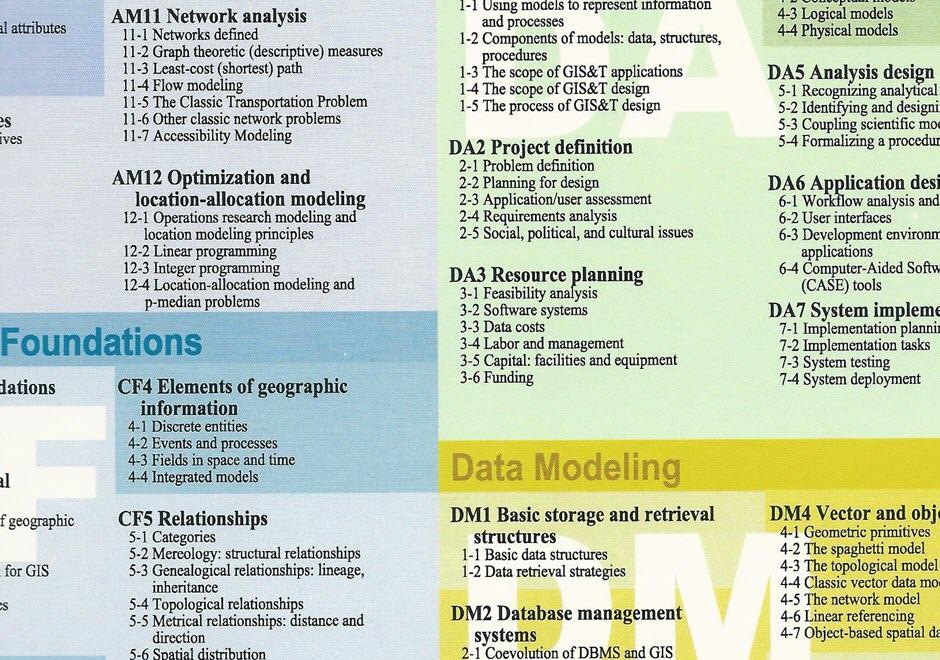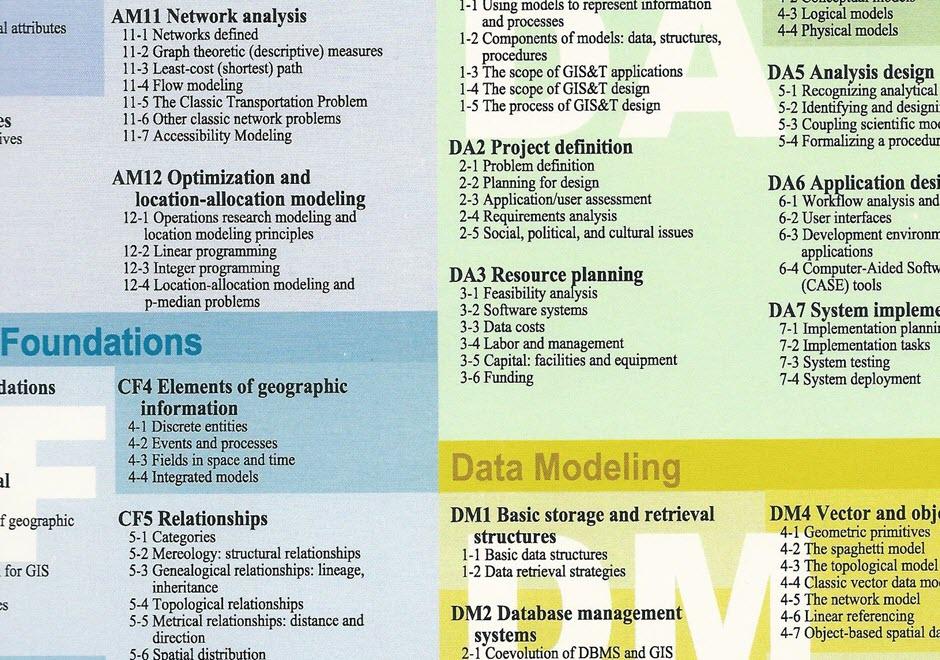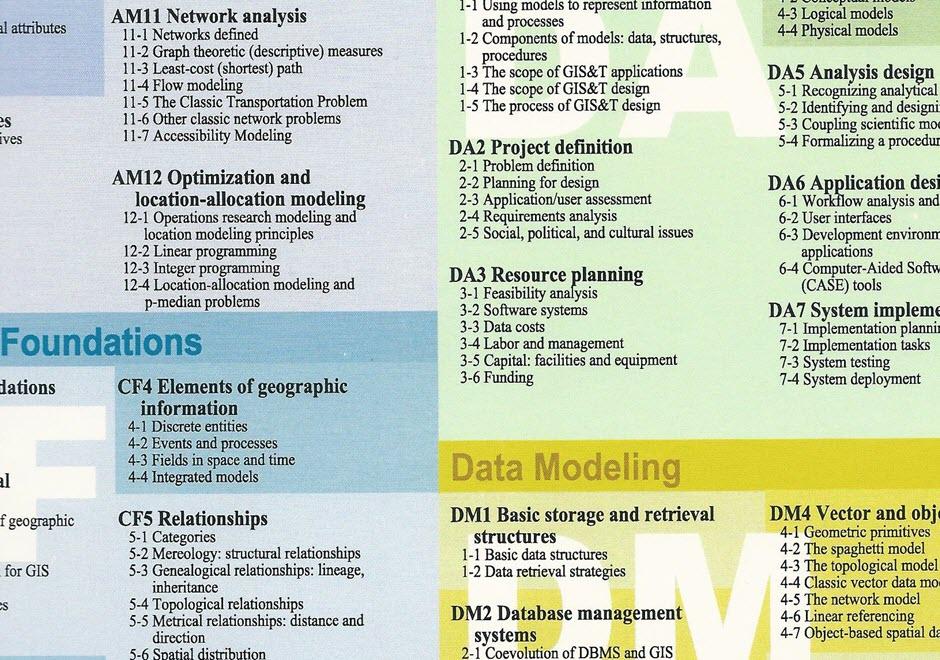FC-03 - Philosophical perspectives

- Define common philosophical theories that have influenced geography and science, such as logical positivism, Marxism, phenomenology, feminism, and critical theory
- Identify the philosophical views and assumptions underlying the work of colleagues
- Describe a brief history of major philosophical movements relating to the nature of space, time, geographic phenomena and human interaction with it
- Compare and contrast the kinds of questions various philosophies ask, the methodologies they use, the answers they offer, and their applicability to different phenomena
- Evaluate the influences of one’s own philosophical views and assumptions on GIS&T practices
- Defend or refute the statement, “All data are theory-laden”



FC-02 - Epistemology
Epistemology is the lens through which we view reality. Different epistemologies interpret the earth and patterns on its surface differently. In effect, epistemology is a belief system about the nature of reality that, in turn, structures our interpretation of the world. Common epistemologies in GIScience include (but are not limited by) positivism and realism. However, many researchers are in effect pragmatists in that they choose the filter that best supports their work and a priori hypotheses. Different epistemologies – or ways of knowing and studying geography – result in different ontologies or classification systems. By understanding the role of epistemology, we can better understand different ways of representing the same phenomena.